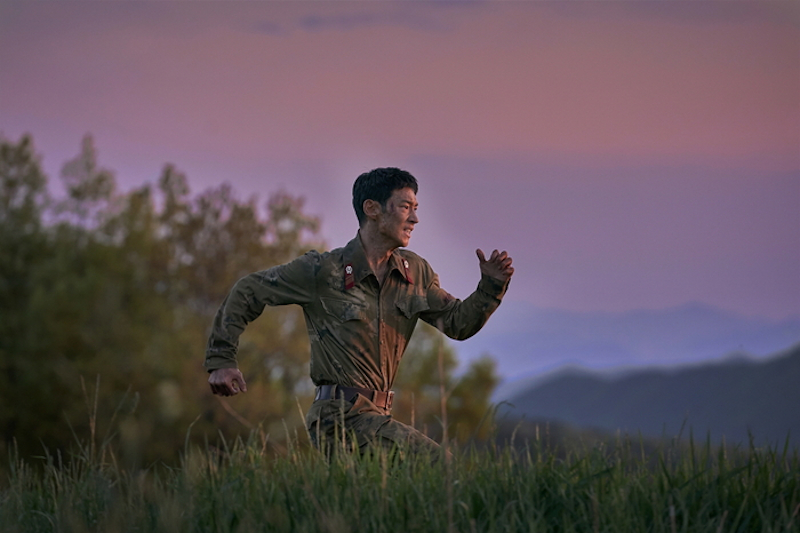Director – Lee Jong-Pil – 2024 – South Korea – LEAFF Cert. 18 – 94m
*****
An army sergeant is caught attempting to escape from North to South Korea, but then a second chance presents itself – played as the Opening Gala at the 2024 London East Asia Film Festival (LEAFF) which runs from Wednesday, October 23rd to Sunday, November 3rd
North Korea. Sgt. Lim Kyu-nam (Lee Je-hoon) is stationed at the edge of the Korean Demilitarized Zone (DMZ) separating North from South Korea, a smart but frustrated soldier who knows he’s never going to rise up the chain of command riddled as it is with nepotism and privilege. Nights, when the rest of his unit is asleep, and inspired by his treasured book of the explorer Edmund Amundsen, he sneaks out of the barracks to map a section of the minefield in the DMZ.
His plan is to escape through that minefield and reach South Korea to defect before the monsoon arrives in four days time and the water moves all the mines around, making his map useless. Then he learns that the bad weather is coming two days earlier than expected. So he must move the date of his escape forward.
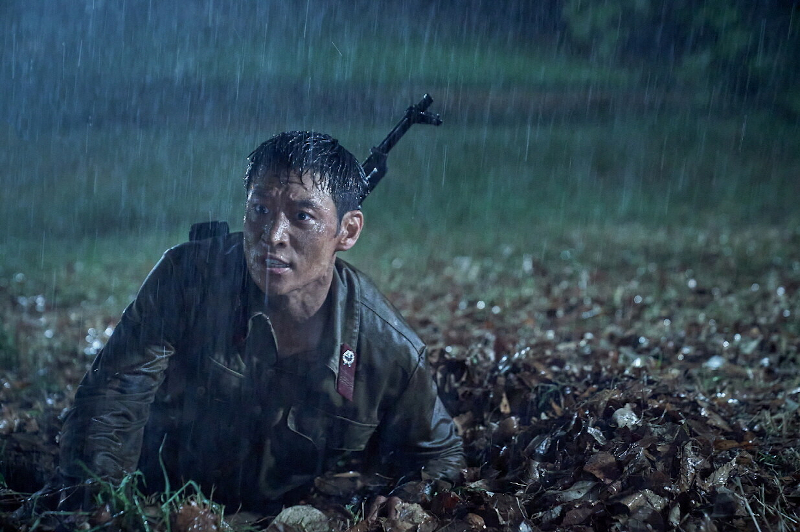
Alas, one of his men Kim Dong-hyuk (Hong Xa-bin) discovers his plan. This is North Korea, where everyone is encouraged to spy on everyone else and report any wrongdoing (see the documentary Camp 14: Total Control Zone, Marc Weise, 2012) – but, no, Dong-hyuk wants Kyu-nam to take him along. Kyu-nam’s worst fears about what could go wrong are confirmed when he tries to stop Dong-hyuk digging his way out near the perimeter fence, and the pair of them are spotted, imprisoned as deserters and tortured. Incredibly, Dong-hyuk confesses that the escape plan was entirely his own idea, and that Kyu-nam had nothing to do with it.
When the National Security Department’s Major Lee Hyun-sang (Koo Kyo-hwan) arrives to investigate, he wants to know why Kyu-nam has been imprisoned when the latter is clearly a Hero of the People who apprehended an escapee. As such, Hyun-sang takes Kyu-nam back to headquarters, has him make a speech to the great and the good, and fixes him up with a nice little job as a military aide.
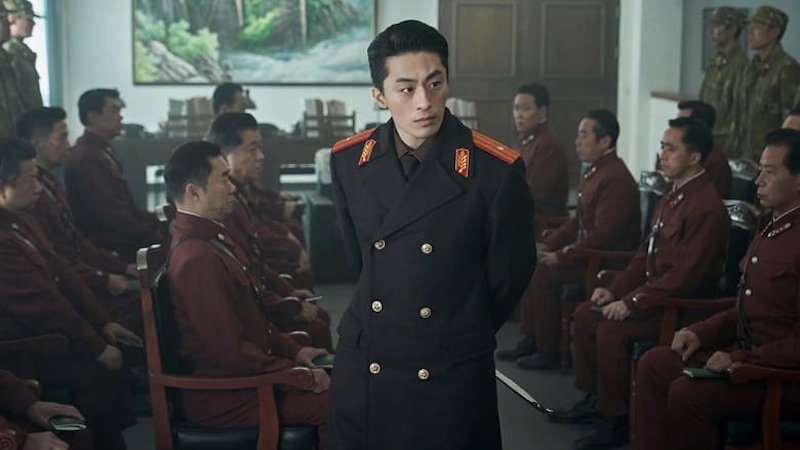
However, Kyu-nam is still determined to make his move through the minefield to freedom before the rains in two days’ time. He picks up a drunk officer from the lavish officer’s dance, uses him as passenger to drive out through a checkpoint, and heads South for the border. He has not forgotten Dong-hyuk’s covering for him, and plans to somehow take him along…
Hyun-sang, realising that Kyu-nam has rejected his help at climbing the ladder of military rank, comes after him.
There’s an intensity and immediacy about all this, which works first and foremost as a terrific cat-and-mouse thriller. It’s very cleverly constructed: for example, when the two escapees are caught early on, there appears to be no way out for wither of them. But then, the arrival of Major Hyun-sang and his complete re-reading of the situation totally turns the tables, and is utterly believable, particularly as it emerges that the older Hyun-sang knew the younger Kyu-nam when they were kids, and was the person who gave him the treasured Amundsen book.
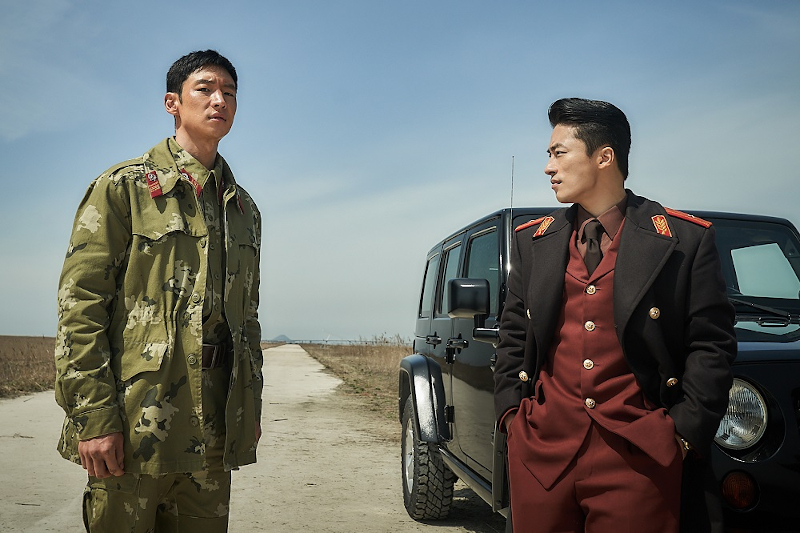
Other clever plot twists too numerous to mention in total include the scene where Kyu-nam exploits the drunken officer as his ticket out of the military base and the scene where, behind cover under fire from Hyun-sang, he smears blood over his own face and fakes himself being shot (in order to, moments later, run and retrieve his map of the mines from nearby on the ground).
It constantly keeps you guessing and even when the fallen Kyu-nam is heavily wounded and his fingertips only inches away from the demarcation line representing his freedom, you have no idea whether or not he’s going to make it, except in the sense that, if he dies, it will be on his own terms as he makes his bid for freedom. (After that, a very sweet and touching scene takes place a year later; hopefully that’s not giving anything away.)
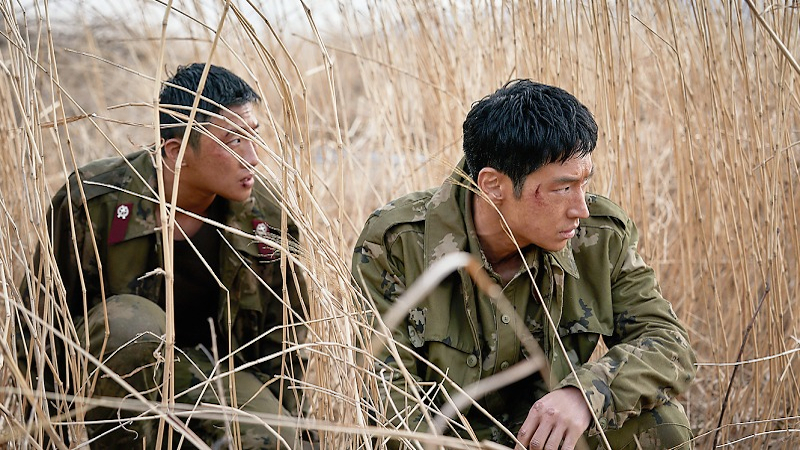
Yet there’s a lot more to it than that. The material about the minefield is compelling. Minefields are frequently presented in narrative movies as military perils, where someone steps on a mine and is blown up. Or somehow manages not to be. (That happens in this film too.) Or perhaps they are shown as objects for disposal and clearance, which process can go fatally wrong (for bomb disposal see also The Small Back Room, Michael Powell, Emeric Pressburger, 1949). Here, one is made aware of the threat these hazardous areas pose to wildlife, with wild boars innocently, ignorantly and fatally wandering into such spaces.
Away from the DMZ, the North Korean landscape is a bleak scrubland where large, constructed lettering proclaims the slogan ‘For the Freedom and Happiness of the People’, empty words in the wilderness. And at the base near the DMZ where Kyu-nam is initially stationed, similar messages are proclaimed over a Tannoy system for the edification of the troops present, forming an unsettling sound landscape.
On a related note, the meeting where Kyu-nam, in his low-ranking soldier’s combat uniform, has to give a speech to the assembled military dignitaries clad in intimidating dress uniform, about his alleged heroic deed, sees him deferentially give the credit for the incident to his self-serving superior officer – who earlier on confiscated a wild boar corpse Kyu-nam was roasting to feed to his malnourished men so that the officer and his well-fed fellow numbers could feast on it.
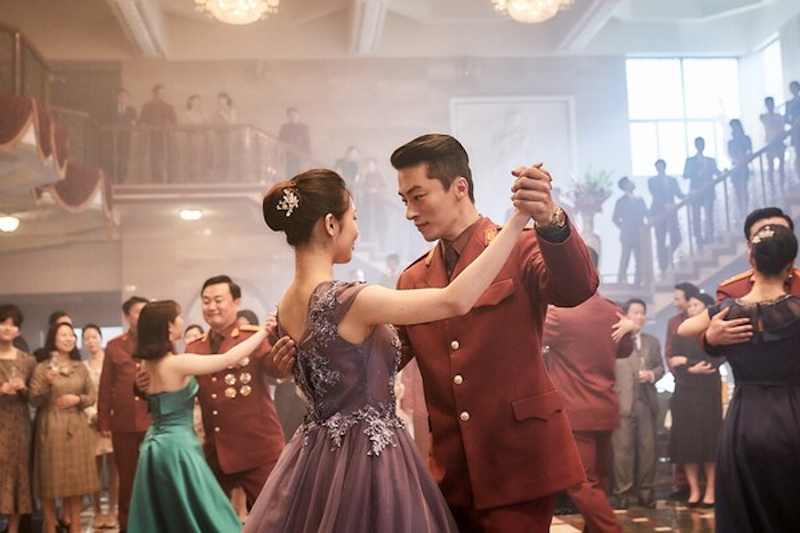
Elsewhere, his low rank uniform is set against a scene of a dance between well-dressed and -groomed officers and elegantly clad ladies; a society rewarding the privileged but not the lower classes. (Even here, a feeling of unease is present: when Kyu-nam gives his speech in praise of this superior, the audience cheer enthusiastically because presumably they’d be arrested or worse if they didn’t.)
Little is seen beyond country wasteland, military bases, and the DMZ – the narrative never takes us into civilian towns or villages, but then given that it’s about characters in the military, perhaps this isn’t altogether surprising.
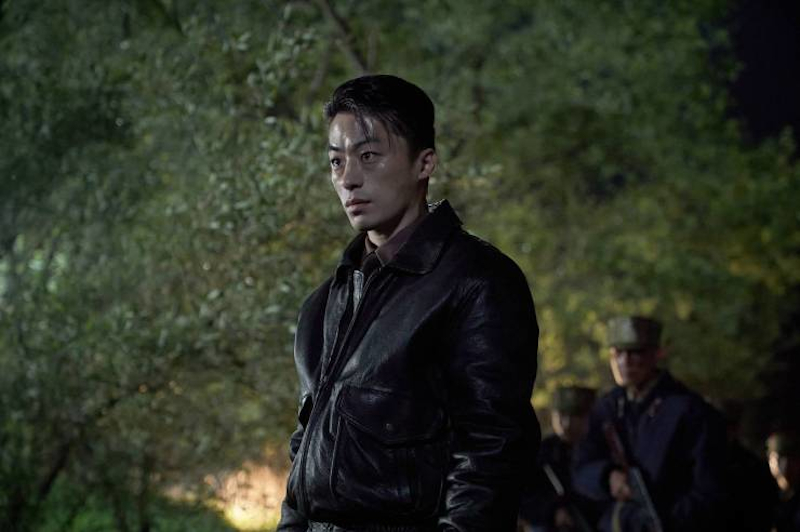
Another fascinating element here, which crops up as Kyu-nam and Dong-hyuk are fleeing their pursuers, is the group of armed women that they run into who are living off-grid and avoiding the authorities, seemingly without any purpose beyond their own immediate survival. Apparently, such groups exist in North Korea (although they tend to include both sexes – directorLee explained in the Q&A following the LEAFF screening that, perhaps because his films, which include Samjin Company English Class, 2020, tend to focus on women, he wanted to even up Escape’s cast’s gender balance).
Occasionally, the script stretches credibility, with Kyu-nam sometimes bluffing his way through difficult situations a little too easily. In real life, you suspect it’s more likely he would be questioned, captured and killed. Which would make for a very different movie (perhaps not unlike the brilliant and devastating National Security, Chung Ji-Young, 2012, a masterwork of cinema which is far more gruelling and far less entertaining). Director Lee clearly has the idea of keeping his audience entertained at the forefront of his mind.
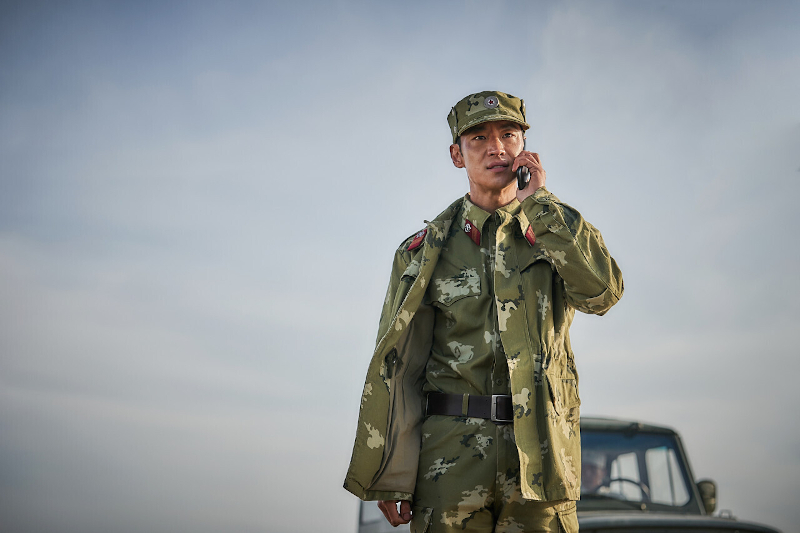
The film pulls off its real coup in quite an unexpected quarter, something not in the original script by Kwon Sung-hui and Kim Woo-geun: the sometimes vicious, brutal and ruthless Hyun-sang is both gay and an obsessive listener to classical music, exchanging glances with a former elite male lover at the officers’ dance, and given intermittent voice-overs about “our time in Russia” and images of his playing piano before a concert audience. In the present day, he is invited to play the piano to a group of ladies and claims to have forgotten everything he knew, as if the brutal regime had squeezed all artistic expression out of him.
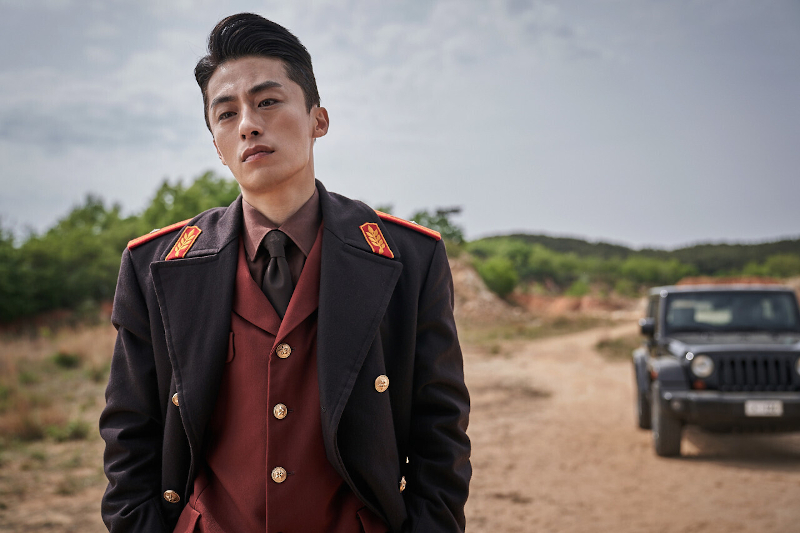
Director Lee’s vision of this character is a gift for an actor, and he has chosen well in casting Koo Kyo-hwan, whose performance steals the film as he alternates between the childhood friend giving the hero a helping hand up the system (“I told you – just call me ‘Bro’”) and a ruthless pursuer of deserters. With his narrow facial structure, he recalls nothing so much as the unsettling prisoner of war camp commandant played by Ryuichi Sakamoto in Merry Christmas, Mr. Lawrence (Nagisa Oshima, 1983); here, Koo likewise delivers a magnificent, towering and ultimately disturbing performance.
In short, this breathless, thoroughly engaging movie proved a superb choice for the opening film to this year’s LEAFF. It deserves to be picked up for a wider UK theatrical release.
Escape played as the Opening Gala at the 2024 London East Asia Film Festival (LEAFF) which runs from Wednesday, October 23rd to Sunday, November 3rd.
Trailer (US, subtitled):
LEAFF Trailer:
Links:
